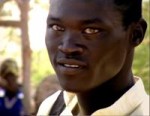Sudan documentary screening on campus today

Lost Boys of Sudan, an Emmy-nominated documentary, follows Peter Dut and Santino Chuor on their quest for freedom and safety from Darfur to America.
On their journey, the young pair survive lion attacks and militia gunfire to reach a refugee camp in Kenya along with thousands of other children. Safe at last from physical danger and hunger, a world away from home, they find themselves confronted with the abundance and alienation of contemporary American suburbia.
The film is playing on campus today at 7 p.m. in the College of Public Health Auditorium.
The event was organized by USF’s College of Public Health along with The Florida Center for Survivors of Torture, USF’s Center for Civic Engagement & Volunteerism, USF’s International Affairs Department as well as the filmmakers.
Community Initiatives Coordinator with the Florida Center for Survivors of Torture, Janet Blair, hopes students will come out for the event.
“This award-winning film will give students a glimpse into the lives of two Sudanese refugees as they leave their homeland due to the violence they experienced there, and journey to the United States to build a very different type of life,” Blair said. “This film captures the culture shock faced by refugees that we work with from many different countries – so the story is much larger than Peter and Santino; the two main characters in the film.”
This issue is especially pertinent for USF students, Blair said.
“It is an important film for USF students to see so that they can have a deeper understanding of the refugee experience – the full journey from becoming a refugee to living in a refugee camp, to being resettled in a new country. Since Florida is a major destination for refugees, it is important that we in the Tampa community educate ourselves about these newcomers and their experiences.
Attendees will have the rare opportunity to meet with a survivor of this tragedy, Abraham Awolich.
Awolich, a Sudanese refugee and founder of the New Sudanese Education Initiative (NESEI), will be on hand to comment on the film and to take questions from the audience.
Awolich’s organization facilitates collaboration between Americans and Sudanese to promote peace in Sudan through education.
The conflict in Darfur has been raging for over three years, during which at least 400,000 people have been killed. Over 2 million people became refugees, and more than 3.5 million Sudanese are completely reliant on international aid for survival.The conflict that has claimed so many lives is between Sudanese armed forces and government-backed militia called “Janjaweed” and two rebel groups in Darfur, the Sudanese Liberation Army/Movement (SLA/SLM) and the Justice and Equality Movement (JEM).
Angelia Sanders is a graduate student in the College of Public Health’s Global Health program who has done work in Sudan.Sanders spent four months in Sudan in 2005 on a Guinea Worm eradication program with The Carter Center. Guinea Worm is a parasite that people get from ingesting contaminated water. Sanders said she came to study at USF because it is one of the few universities that offer a doctoral degree in Global Health.
“Global health doesn’t get a lot of attention,” she said
She loves the program at USF and really appreciates the large number of international staff in the program. Though she is a busy student, Sanders has started her own non-profit organization called Tamani Africa, which assists children orphaned by HIV/AIDS by paying their school fees
“I think it’s important for USF students to see the movie because it’s necessary as students to educate ourselves on what life is like in other parts of the world,” she said. “This movie gives a glimpse into what the real world is like and into something that most Americans will never experience. A lot of these Sudanese “lost boys” are also students, and so I think it’s good to see what their life is like and what it is like to move somewhere new and try to fit in. It’s very inspiring – what these men have gone through.”






